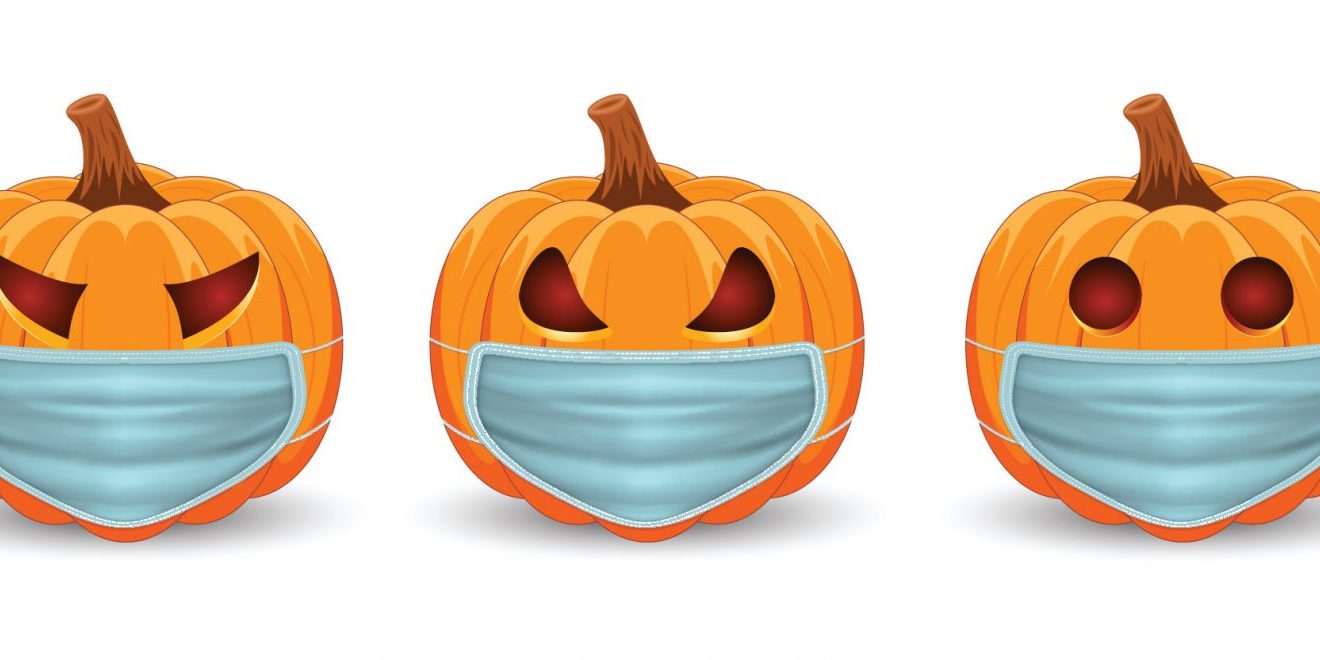 by Autumn Ryan, Founder and CEO of The SoRite Corporation
by Autumn Ryan, Founder and CEO of The SoRite Corporation
I think I’m seeing more homes decorated for Halloween than ever. Attribute the surge to Covid-19? Seems like the pandemic has Americans doing all kinds of unusual things. Like disinfecting for deadly viruses! Sales of our flagship hospital disinfectant are up. We have been offering SoRite for germ disinfection for almost six years, and believe me, there were some pretty spooky germs six years ago that persist today.
The List
I’ve seen several lists circulating on deadly viruses and bacteria other than Covid-19. The following from our kill list are ones we have sprayed for during institutional outbreaks in the past.
H1N1 and Influenza B
Flu viruses circulate each year. And in spite of widespread vaccine use, many vaccinated people still get the flu. While not as deadly as the novel coronavirus, doctors warn that you really don’t want any of these bugs. To be clear, the flu is also one of the deadly viruses. In the 2018-19 season, over 32,000 Americans died with the flu. And like Covid, flu can also cause lingering complications to your heart, brain, muscles and other organs.
RSV
Respiratory syncytial virus (RSV) is another virus that we typically spray for during outbreaks, usually in schools. It’s so common that the Mayo Clinic reports most children have been infected with RSV by age 2. The infection can be severe in some people. Common symptoms are cold-like: congestion, dry cough, low grade fever, sore throat and headache. More severe symptoms include a high fever, wheezing, difficulty breathing and a bluish color to the skin due to low oxygen levels. If you or your loved one have any of these severe symptoms, it’s time to seek medical attention.
Viral Hepatitis
According to the Centers for Disease Control and Prevention (CDC) widespread outbreaks of Viral Hepatitis A are continuing to affect the U.S. Hep A can be spread by contaminated food and water, but it is more commonly spread from person to person. There is however a vaccine, and high-risk groups are urged to seek that preventative. Those at high risk include people with chronic liver disease, people who use drugs by injection or non-injection, men who have sex with men, people experiencing unstable housing or homelessness or those recently incarcerated.
Norovirus
Norovirus causes diarrhea and vomiting and is sometimes called the stomach flu. However, there are several types of noroviruses and the illness itself is not related to the flu. Transmission is typically passed from person to person, but can also be passed through contaminated food or water or touching a contaminated surface then putting your unwashed hands in your mouth. If you or someone in your family have symptoms of a norovirus you want to be careful to drink water so that you do not become dehydrated. Dehydration with norovirus is what lands most people in the ER.
Rotavirus
Rotavirus is very contagious and one of the most common causes of diarrhea in infants and children resulting in over 200,000 deaths each year. There is a vaccine but there are several kinds of rotavirus so even if you’ve had the vaccine, you can get infected. Adults too.
As with Norovirus, hand-washing is the best method of defense. Dehydration is a serious complication of this bug so make sure you encourage children to drink sufficient water. Children should see the doc if diarrhea persists for more than 24 hours or has frequent episodes of vomiting or has a fever over 104 degrees F. Adults should call their doctor if you can’t keep liquids down for 24 hours or if you have diarrhea for more than two days or a fever over 103.
One Thing In Common
The one thing in common with all of these deadly viruses is that there’s no cure. Antibiotics only work against bacteria.
In fact, our disinfectant works to kill viruses and bacteria differently for that very reason. But as an oxidizer it has the ability to eliminate both pathogens from the surfaces you touch. Keeping your counters, handles and knobs disinfected during flu season is especially important. Even more so is washing your hands often with soap and warm water for a full 20-seconds. (That’s two times through “Happy Birthday.”)
Subscribe To Learn More
Like reading our tips? We’d love for you to subscribe today to learn more each week.










